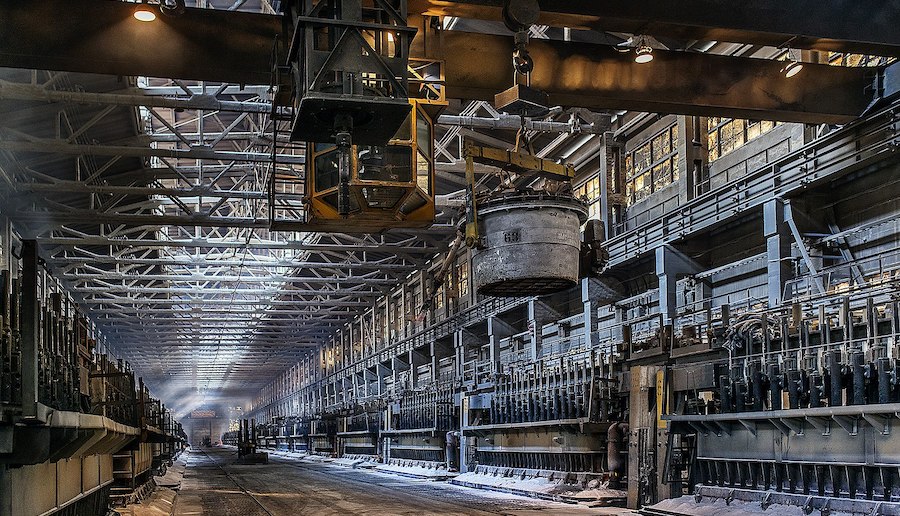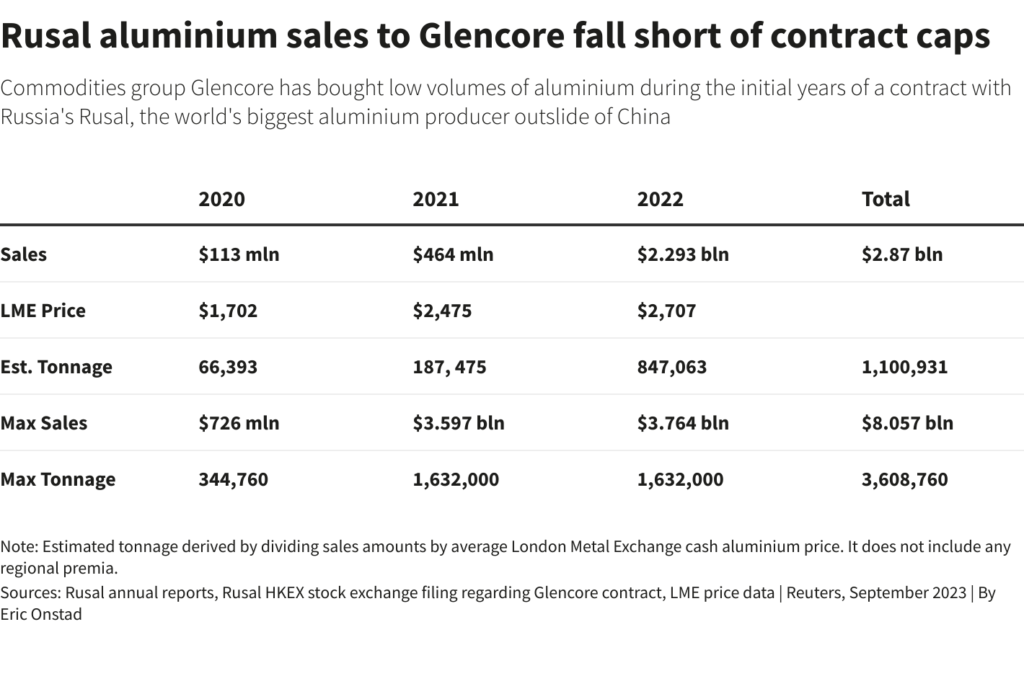Glencore took low volumes of Rusal aluminum, contract could go to 2025

Glencore bought only a small portion of a potential 6.9 million metric tons of aluminum it could have bought in 2020 to 2022 under its contract with Russia’s Rusal, which could be extended to 2025, regulatory filings show.
Commodities group Glencore, under pressure to stop buying metal from Rusal due to Moscow’s invasion of Ukraine, said last year it would agree no new contracts for Russian material, but would meet existing obligations.
An early end to the contract would potentially open up large amounts of supply from Rusal, the world’s largest aluminum producer outside China, to Glencore’s rivals such as trading house Trafigura.
Trafigura declined to comment.
Rusal’s annual reports show Glencore bought $2.87 billion worth of aluminum under the contract during 2020-2022, which according to Reuters calculations would amount to around 1.1 million metric tons based on the average London Metal Exchange cash price for each year.
The 1.1 million tons is an estimate because the price would also include regional premiums, which were unable to be included since the destinations were not given.
“There is definitely a backlog of (unfulfilled) metal under the contract,” said a source close to one of the parties.
Many participants at last week’s aluminum conference in Barcelona, in the process of hammering out supply contracts for next year, were puzzled about the scope of the deal, with many under the impression the contract would end next year.
Neither Glencore nor Rusal have said whether an option under the contract would be exercised to extend purchases to end-2025 from its original time frame of September 2020 to end-2024.
Glencore declined to comment and Rusal did not immediately reply to a request to comment.
The contract gave Glencore the right to buy up to 6.9 million metric tons over the life of the contract, but the volumes through last year have failed to come close to that number, according to Rusal’s annual reports.
The purchases are in sharp contrast to the maximum allowed tonnage during 2020-2022 of 3.61 million tons.
Long relationship
Many companies are refusing to buy Russia material due to the Ukraine war even though there are no government sanctions on Rusal or Russian aluminum.
Glencore has a long relationship with Rusal, having been part of a merger in 2007 that created the current group.
The Swiss-based group also owns a 10.55% stake in Rusal’s parent company EN+ Group and Glencore has said “there is no realistic way to exit” the stake in the current environment.
“Glencore is not going to end this relationship if they don’t have to,” said a European trader who has worked with both parties.
“They are trying to bide their time, hoping for an end to the war (in Ukraine) so business can go back to normal.”
When asked by an analyst during a results call in February when Glencore would end the contract, CEO Gary Nagle said “It’s not only a term, it’s a volume contract,” adding that the contract may end in the second half of 2024.
The contract allows Rusal postpone up to 10% of each yearly tonnage to 2025, in which case the term will be extended to the end of 2025.

(By Eric Onstad and Polina Devitt; Editing by Pratima Desai and Timothy Gardner)
{{ commodity.name }}
{{ post.title }}
{{ post.date }}




Comments